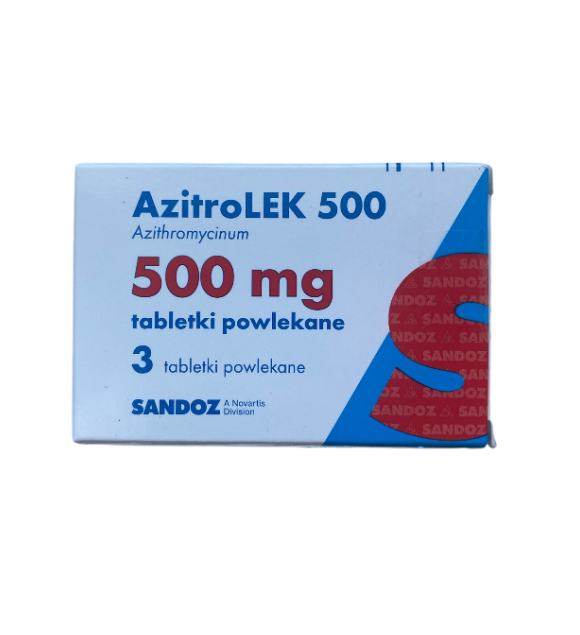Azitrolek (Azimycin) 500 mg 3 tablets
Description
Composition
Dosage
Action
Indications
Contraindications
Side effects
Warnings and precautions
Use of other medications
drugs that affect QT intervals, such as: quinidine, porocainamide, dofetilide, amiodarone, Sotalol; Cisapride; Terfenadine; antipsychotics; antidepressants; fluoroquinolones; antacids; oral anticoagulants, such as Warfarin; ergot alkaloids, such as ergotamine; digoxin; cyclosporine; atorvastatin; rifabutin.
Pregnancy and lactation
Use of the drug in children and adolescents
Ask a question or inquire about delivery to your country
